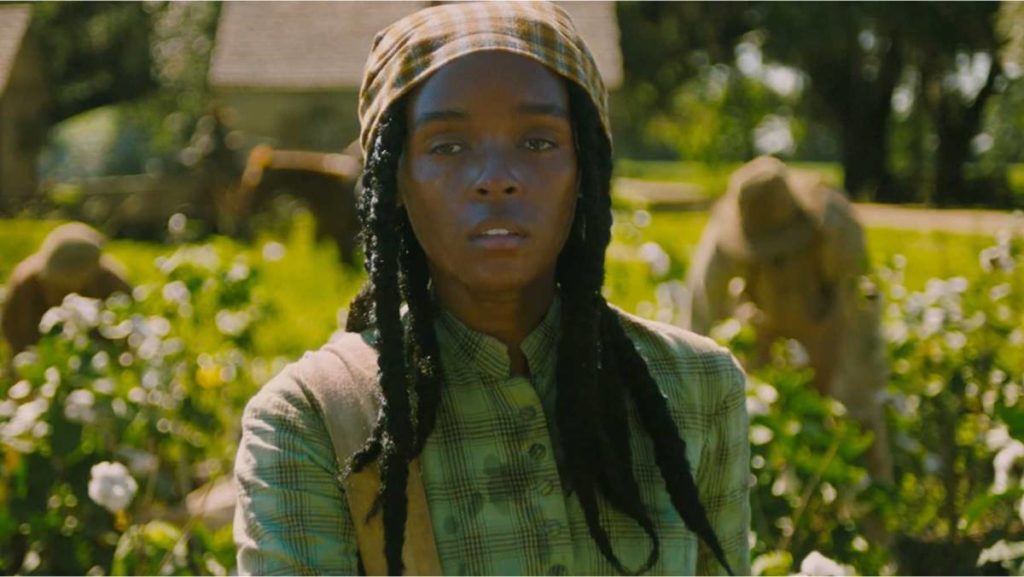The only thing worse than a bad movie is a disappointing one. In the case of “Antebellum,” the directorial debut of Gerard Bush and Christopher Renz, the latter unfortunately applies.
Luckily, “Antebellum” has a few redeeming aspects. For starters, it has singer-actress Janelle Monáe — from Academy Award-winner “Moonlight” and Academy Award-nominated “Hidden Figures” — giving a leading performance the film’s writing is unworthy of. It also has exceptionally well-lit and dynamic cinematography. And most importantly, it has a great premise.
Or so it seemed. From the trailer, the film appears to be some sort of time travel, alternate dimension nightmare in which a modern-day woman named Veronica (Janelle Monáe) is transported into antebellum Louisiana and wakes up as a slave named Eden — also played by Monáe. A timely premise like this, if executed properly, could have explored the trauma slavery has left on the Black community.
The “Antebellum” that audiences saw in the trailer is vastly different from the “Antebellum” they received. When the film’s pursuit to deliver on a great premise is attached to a story that doesn’t make a lick of sense, the audience has nothing to chew on.
The first 30 minutes follows Eden, who is held captive and sexually assaulted by a Confederate soldier. Although the plantation owners enforce strict no-talking rules, Eden manages to bond with a pregnant woman, Julia (Kiersey Clemons), who convinces Eden to make a plan to escape. This is the best part of the film. It’s the only time in which the narrative unfolds in a straightforward fashion.
Suddenly, the film jolts viewers out of Eden’s world and into Veronica’s, a famous modern sociologist. Veronica wakes up in bed wide-eyed next to her husband and daughter, revealing that she was simply having a nightmare.
From this point on, the film becomes a puzzle, but not the compelling kind. It’s one where none of the pieces fit. Veronica, when departing from her dinner date with her friends, mistakes a black SUV for her Uber and is knocked unconscious and kidnapped. She then wakes up as Eden next to the soldier holding her captive. Even though the film revealed that Eden’s world was a nightmare, it’s not clear if she is continuing the dream, or actually being transported back in time.
The film doesn’t make any effort to explain this contradiction, shattering the legitimacy of later scenes of the film. The problem is so amateur it leaves viewers asking themselves if they missed something. Perhaps they would think there was an accident in the editing room that made the film such a mess. All of this could have been fixed with a more straightforward script.
The confusion in “Antebellum” isn’t like “Memento,” Christopher Nolan’s 2001 mystery-thriller, in which the confusing narrative is essential for establishing a theme. It’s more like an M. Night Shyamalan movie, where confusion becomes a hollow attempt to create meaning rather than a means for developing the narrative. The confusion continues until the film’s end, a ridiculous twist that will only increase the audience’s disorientation rather than provide clarity.
“Antebellum” has notable qualities and great ambition, but nothing can save a film from a dreadful script. The film needs big, structural change in order to work in the way it wanted to.




















